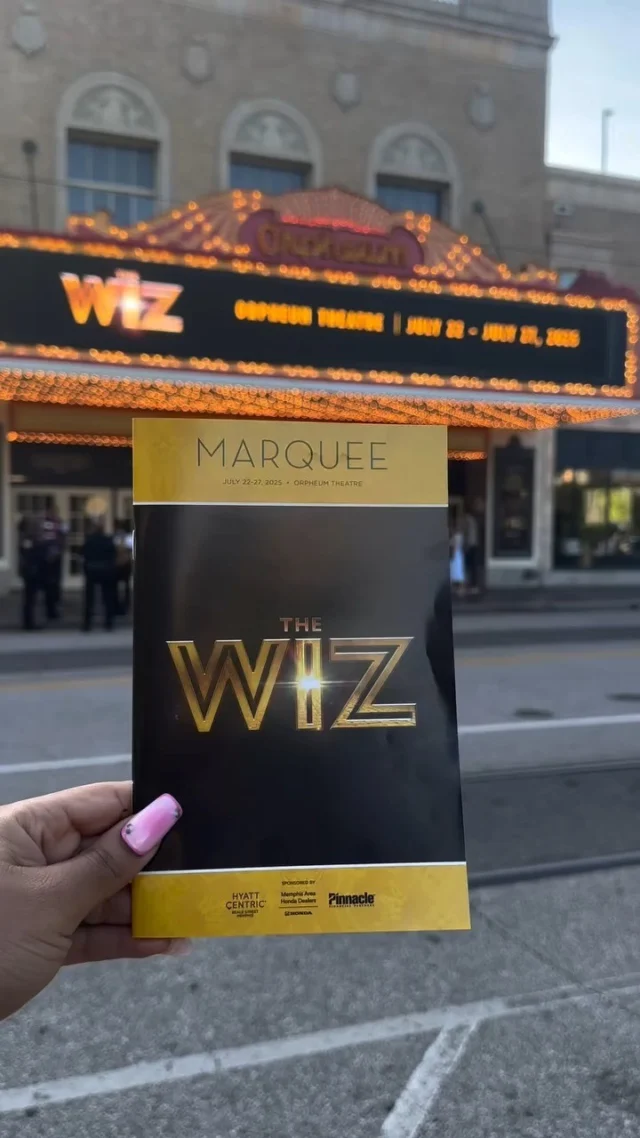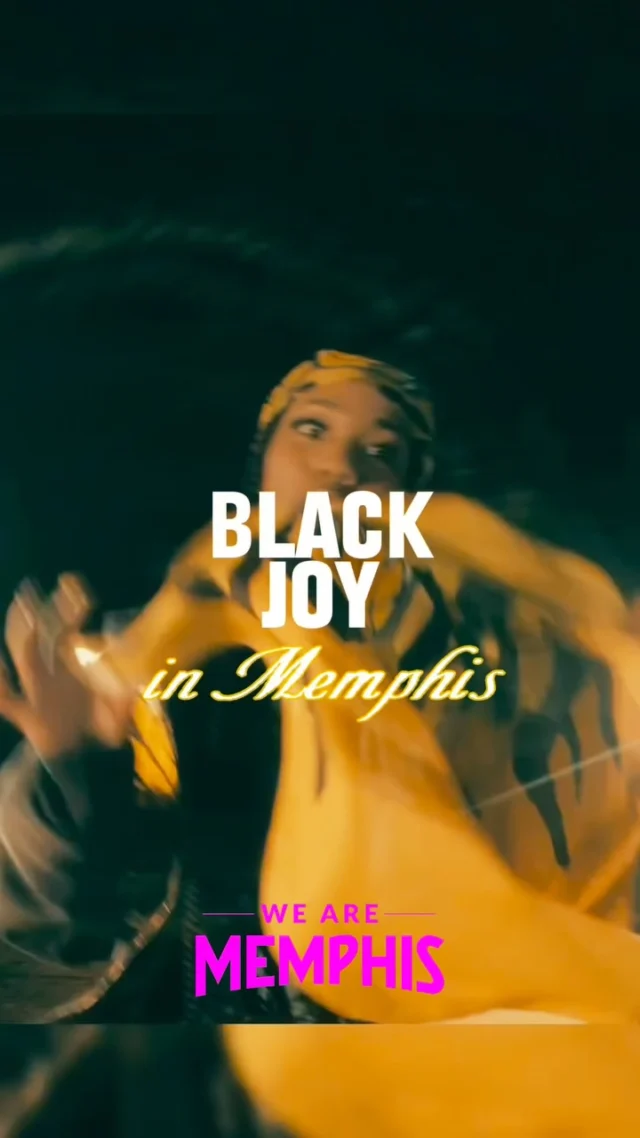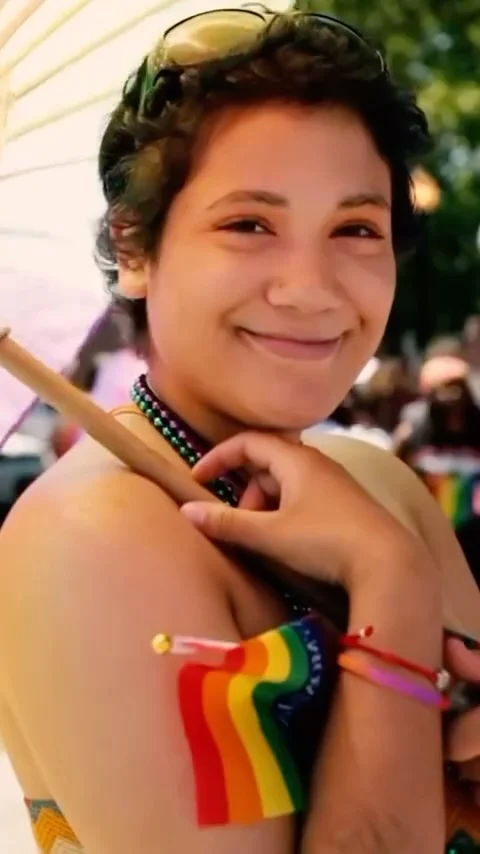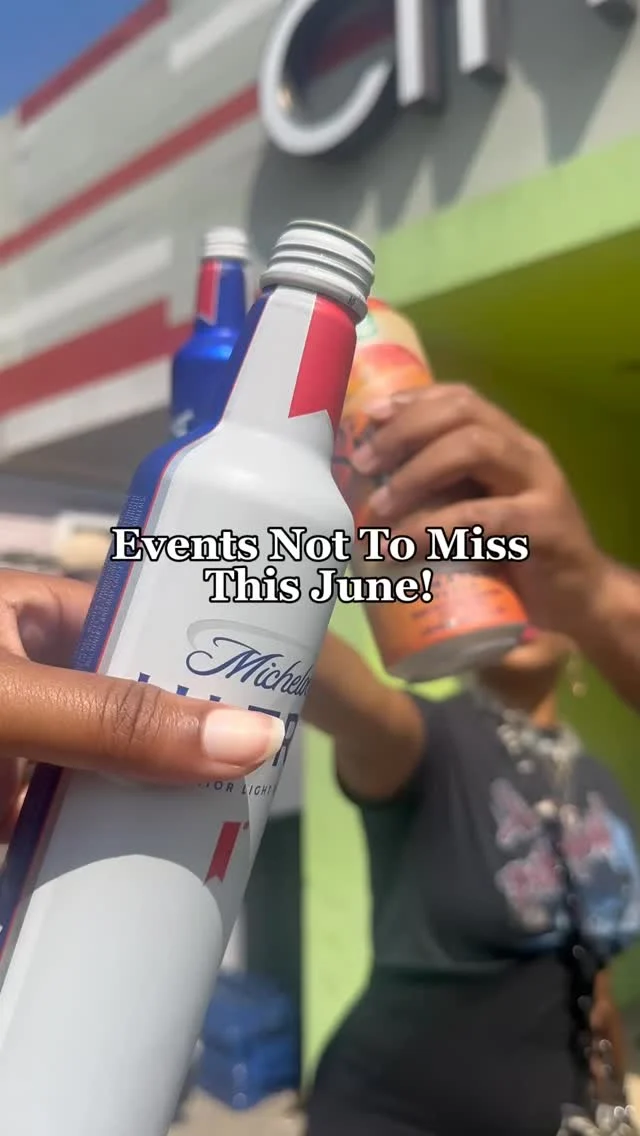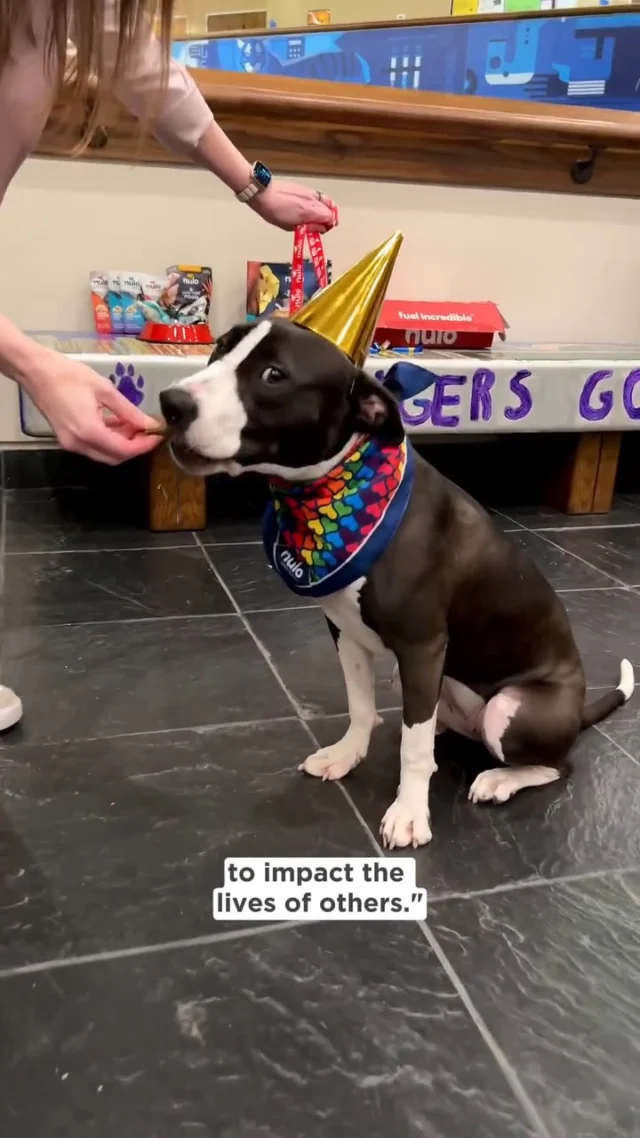Story by Katie Kelly
Photos by Gabrielle Duffie
Imagine you’re standing shirtless and blindfolded in the middle of a busy college campus. You’re surrounded by cans of paint and you ask those who pass by to stop and paint something, anything, on your actual body. No, this isn’t some drunken dare or Greek life hazing ritual. Instead, you’re there on your own freewill to try and do something much scarier: encourage people to be vulnerable.
That’s the idea behind musician Aaron James’ new project, “Paint What You Feel.” With this, James pivots from his traditional role behind his guitar and instead takes on a new role as a human canvas. “My songs represent a lot of themes of self-discovery and the importance of telling those stories,” he explains. “The paint kind of represents the parts of me I haven’t discovered yet, but there’s always parts left to uncover. So, the idea was to get other people to tell their stories and be vulnerable about things about themselves or how they’re feeling through painting on me.”

Paint as self-expression isn’t new to James. If you’re familiar with his live show, he has always performed with streaks of paint on his face and body. He admits that initially he did this to create an onstage persona (and truthfully, to help with a little stage fright). Eventually the body art and his music became intrinsically tied. “Honestly when I released my very first songs, there was a woman who, just for promo of the songs, would work with me to do different body paint type stuff. We painted something to represent each song. It was from there that I had the idea that I could do this all the time and it could really mean something to myself and others.”
It was before the 2016 election that James first set out to try his ‘paint what you feel’ idea in real life with real people. “There was a lot on people’s hearts at the time, so people wanted to get a lot out,” he recalls. “I stand there and I don’t speak, but I can still hear obviously. I just heard a lot of very positive things from those that participated. It definitely made people feel good.”
Despite the glimpse of success the project had, James’ focus shifted back to just writing and creating his own music. He released a handful of beautiful singles and stunning EPs, set out on a solo tour, and collaborated with his Unapologetic labelmates and other local musicians. It wasn’t until many years later that James would bring the project back at a Trolly Night in downtown Memphis. There, he once again stood blindfolded and shirtless, armed with cans of paint, and asked those that passed to stop and paint something on him. And, once again, the impact was overwhelmingly positive. “Eventually it became, like, oh maybe there’s a bigger idea here. We can turn it into something more, like a documentary sort of thing.”
And that’s exactly what he did. Earlier this year, James embarked on a college campus tour for the project. Holding a sign that says “I am a product of you. Paint what you feel,” he physically became an outlet for students’ thoughts and feelings. Sometimes the contributions would be as fun and unassuming as a heart or a smiley face. Other times, there’d be deeper messages of kindness and encouragement written, most likely just as needed by the next participant as it was by the author themselves.
On campus, he was joined by collaborators (and Unapologetic producers) CmaJor and Eillo, who helped conduct interviews with participants after. “CmaJor would pull people aside and ask things like ‘what did you paint or why did you paint that?’,” James says. He’d also asks more intense questions about vulnerability, like is it hard for the painter to be vulnerable and why. These questions were asked with the idea that hopefully one person expressing themselves or sharing what they’re going through is going to help somebody else in a similar position. And for the most part, this has been resoundingly true.
“There have been several times where,” James starts to tell me then stops. He shakes his head almost in disbelief and smiles widely before he continues. “This is one of my favorite moments, where conversations will start among strangers who are both painting on me. Maybe one of them painted or wrote about something they were stressed about. Then the other will look at it and ask them, ‘hey, what do you have going on right now?’ and that person will just start opening up to a complete stranger. I hear them talk to each other about it and sort of like, console each other. It’s special,” he states.
This type of interaction lies at the heart of the project’s mission, the true why behind it all. James speaks at length about the braveness of vulnerability and the importance of being unapologetically yourself, and these ideas are all essential to “Paint What You Feel”. But at the crux of it, this project shows the power of connection. Not an Instagram like or a retweet. Not a Facebook post or choreographed Tik-Tok dance. Real, genuine connection where people feel heard and seen; where people feel validated and supported. I mean, it’s 2023 and the world is going to shit. The least we can do is give a fuck about each other, right?

“I want people to not get lost in all the noise. I want people to slow down and take moments to check in with themselves and others. To be honest with themselves and ask themselves how they’re really feeling,” James explains when I ask him what he wants viewers to take away from the documentary. “I think the more you can understand about yourself and share those understandings, the more people can relate to you and the more connected we’ll all feel.” It’s an ambitious sentiment, but one that seems entirely plausible when you see what James has already accomplished with the project.
Just because James has wrapped the project for now, it doesn’t mean that this is the end. In fact, he looks at it as only the beginning of something he hopes to continue doing in new locations and with new people and stories. “Everyone has a unique and special story. Just because your life and your existence is unique doesn’t mean that nobody else can relate to it in some way. You’d be surprised at what people connect with. We shouldn’t be intimated by the uniqueness of someone else’s stor,y but inspired by it.”
The documentary is set to be released at the beginning of 2024.
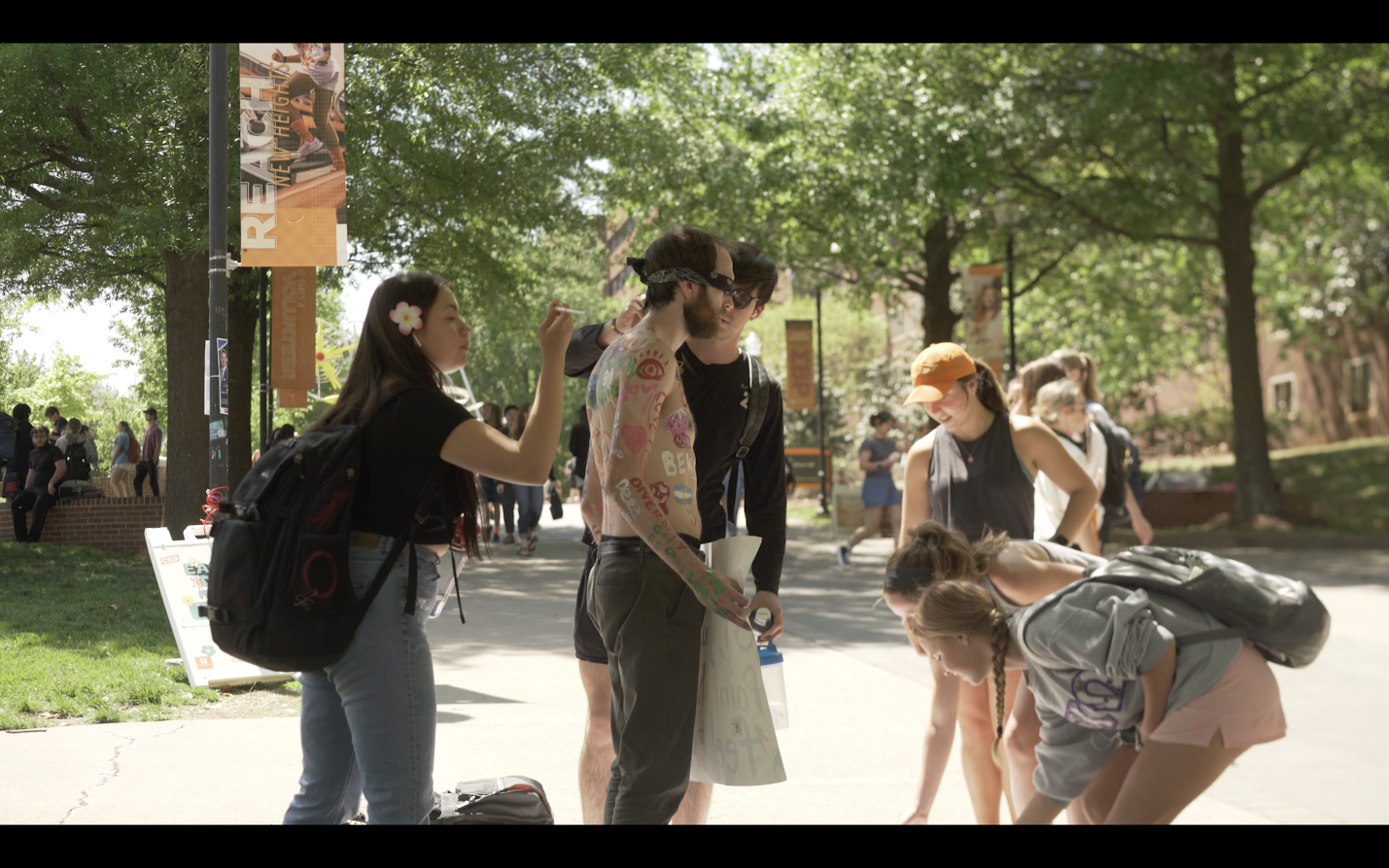







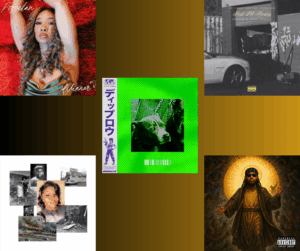








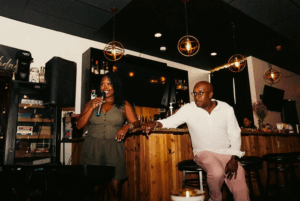









![The countdown is ON, Memphis! We’re officially 30 days out from the @unitememphis 5K + 1-Mile Walk/Run—and this year, we’re stepping into unity on 901 Day 🙌🏽
📍 Monday, September 1 | National Civil Rights Museum
🕘 Start time: 9:01AM
🎶 Food, music & fun to follow
Whether you’re walking or running, this isn’t just a race—it’s a movement. And there’s no better time to join in than now. 👟✨
🎓 COLLEGE STUDENTS: Be one of the first 100 to register using your .edu email with promo code NEXTGENUNITE and your ticket is just $10 (that’s a $32 savings 👀). Limit 2 per person, so tell a friend!
Let’s walk. Let’s run.
Let’s #UniteMemphis 💛
🔗 [link in bio]](https://wearememphis.com/wp-content/uploads/sb-instagram-feed-images/526805187_18335272954206022_6056852028660485499_nfull.webp)
